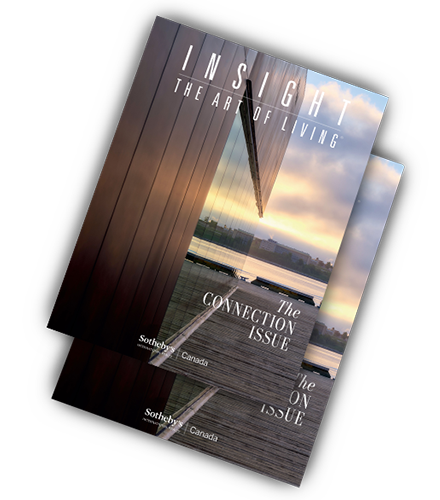Follow your most intense obsessions mercilessly. This piece of advice from literary powerhouse Franz Kafka is something Irish-Canadian writer Emma Donoghue has taken to heart. Fans of Donoghue’s work — 14 novels, nine plays, five short story collections, three film scripts, three books on literary history and two children’s books and counting — know that everything she creates begins as an obsession.
Her newest book, The Paris Express, was inspired during Donoghue’s hunt for a Paris rental apartment, and a search of the city’s Montparnasse neighbourhood had her down a rabbit hole for nearly a year. The reason? A collection of photographs of the area on October 22, 1895, a day French historians consider to be one of the country’s most catastrophic locomotive disasters.
One photo in particular captured Donoghue’s interest. Titled Accident à la Gare Montparnasse and credited to Studio Lévy and Sons, the snapshot freeze-frames the moment when a steam train has broken through the station’s buffers and walls while coming off of an elevated track. This breathtaking image captures the crash that left part of the train hanging off the upper floor of the station, dipping onto a Montparnasse pedestrian street below.
“I saw that picture and it was like falling in love,” says Donoghue. The snapshot prompted her to hunt down the train’s passenger list and tap into French state military and matrimonial records of each person riding coach or first class on that fateful day. More than 40 archival articles reported on the accident also helped fill in the gaps. “Seeing that train spill onto the street was a thrilling sensation. It made me want to research anyone and everything that had to do with this incident. I found myself going through sources which informed the characters I built on, real and fictional, They’re not hard facts about my story, but they’re really rich sources.” What surprised Donoghue most was the cast she found on board.
“People often assume that those who were riding were only very rich white people, but 1890s Paris was just such a happening place with people from all over the French Empire and other countries in the West. I was able to assemble a multicultural and varied cast…. And to think all these characters came to be because I took one look at an old image. After that, I had to write a book about it.”
A similar long-standing connection to history happened in 1990, when Donoghue was studying in Cambridge and stopped by a bookstore because she saw in the window I Know My Own Heart: The Diaries of Anne Lister 1791-1840, edited by Helena Whitbread. Initially, she was drawn to its green spine, yet Donoghue’s fascination piqued when she discovered she nabbed a collection of diary entries by a woman often referred to as “the first modern lesbian” in England.
After reading Lister’s entries, Donoghue was hooked, writing a play adaptation of I Know My Own Heart and a novel, Learned by Heart, a fictional take on Lister’s romance with heiress Eliza Raine. Lister’s diary entries, which were often written in code, kept Donoghue looking for hidden meaning in the text for years.
“In my teens, I chose to write poetry because it’s wonderfully ambiguous,” Donoghue says, “especially if you write poems addressed to a gender-neutral ‘you.’ This way, you can say a lot without ever having to specify a gender. I remember moments when I’d win a poetry prize at school, in my school of 600 girls, and the nuns would have me stand up and read the poem aloud. The girl I was writing the poem about was right there. Those situations did feel extremely coded, tense and, of course, thrilling. As soon as I switched over to fiction, there were no more disguises.”
Moving into fiction gave Donoghue the kind of success that most authors merely dream of. She’s won over 20 literary awards and received global attention when her novel, Room, was made into a film by Lenny Abrahamson in 2015. The book focuses on a mother and son held captive in a bunker by a sexual abuser, and had many studios bidding for the movie rights. Donoghue insisted that she be the one to write the script. Her instinct was spot on as the film went on to win an Academy Award for Best Actress and received nominations for Best Picture, Best Director and Best Adapted Screenplay.
Room — which at its base speaks to a child and mother being imprisoned — has become a mix of allegory and a forewarning for many astute new reviewers on TikTok who are making the connection.
“I think the questions that I tried to ask in Room are kind of existential. How can you make meaning of your life when you are unfree? How does a mother take a pregnancy, which was in no way intentional, and turn it into something to give her life meaning and joy completely separate from her captor? Those tensions between being a mother and being a person have stayed extremely relevant.”
It’s the golden ticket for a writer to be connected to multiple generations and to represent voices that have historically been silenced. For the longest time, Donoghue would joke that she was the only lesbian in Ireland when asked about why she moved to Canada (it was for love, she’s married to Canadian professor Chris Roulston). Instead of seeing her identity as something that could pigeonhole her work, Donoghue embraces all facets of herself and her audiences.
“I’m very happy to represent for the Irish, for women, for queers of all stripes, for Canadians, so long as nobody then expects me to always write about those people,” she says, laughing. “Anyone who’s had a best-seller is lucky, so you won’t catch me complaining.”
By Jeremy Freed — *This article originally appeared in Insight: The Art Of Living Magazine – The Connection Issue.



